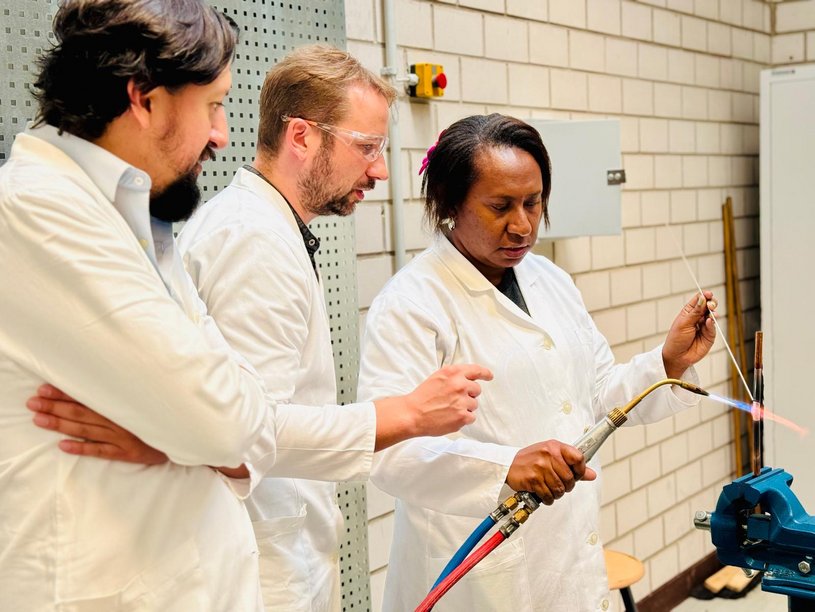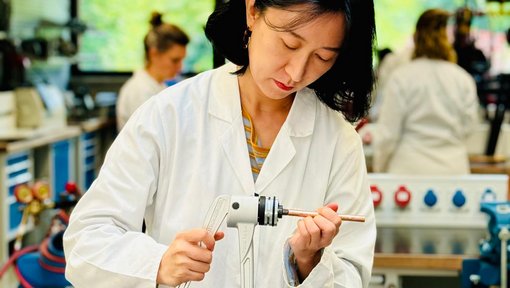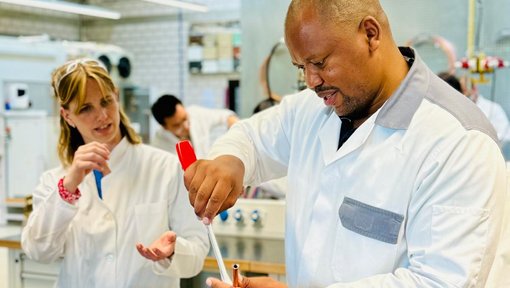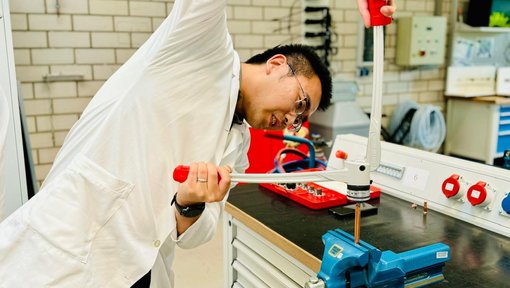One week of practical training and theoretical sessions lies behind a group of policy makers in the climate and ozone protection sector. They all participated in a training in Germany in June.
Technical knowledge is required to make reasonable political decisions – therefore, Proklima organized another Cool Training for Policy Makers to provide them with deep-diving sessions about climate and ozone friendly refrigeration. The refrigeration and air conditioning (RAC) sector is responsible for up to 10% of the global emissions and is thus of high importance when it comes to effective climate and ozone protection.
Within one week full of practical and theoretical training sessions, the participants had the chance to deepen their knowledge on natural refrigerants. Additionally, some thematical background from the political perspective was provided by the GIZ.
One highlight for a lot of the participants were the practical exercises where they had the chance to learn how to detect leakages or to braze. Within several theoretical lectures, the participants could understand the functionality of the different natural refrigerants and their application.
Part of the training was an excursion to the company of Wilhelm Brandenburg in Frankfurt where the participants had the chance to see everything they learnt in class in reality. Due to the mix of political input and technical sessions, the participants could immediately see the relevance of their work.
The participants work as National Ozone Unit Officers (NOU) or climate focal points within ministries and governmental bodies of their respective countries from around the world. 16 countries from South America, the Caribbean, Africa, Europe and Asia were represented in the training at the vocational training center Bundesfachschule Kälte-Klima-Technik (BFS) in Maintal, close to Frankfurt, Germany.
Supported by…
Due to the diverse origins of the participants, the training was financed in different parts by different projects commissioned by the Federal Ministry for Development and Cooperation (BMZ), the Federal Ministry for the Environment and Consumer Protection (BMUV) and the Federal Ministry for Economic Affairs and Climate (BMWK) of the Republic of Germany (in the context of the International Climate Initiative). Other participants were financed by the United Nations Development Programme (UNDP), the United Nations Industrial Development Organization (UNIDO) and the United Nations Environment Programme OzonAction.




